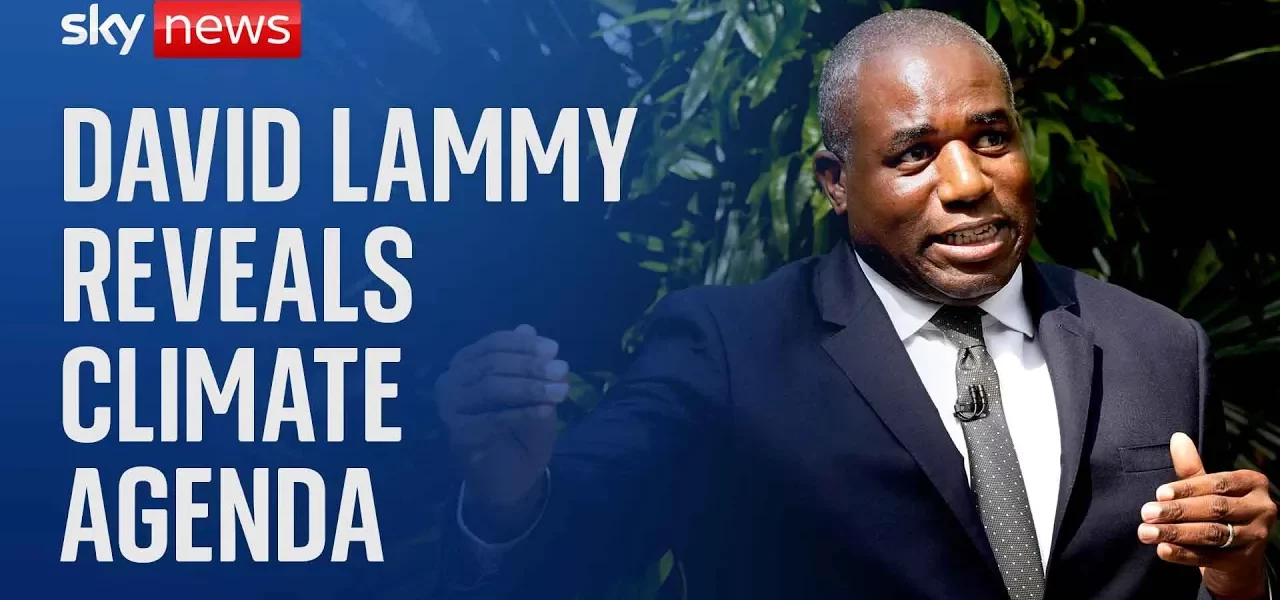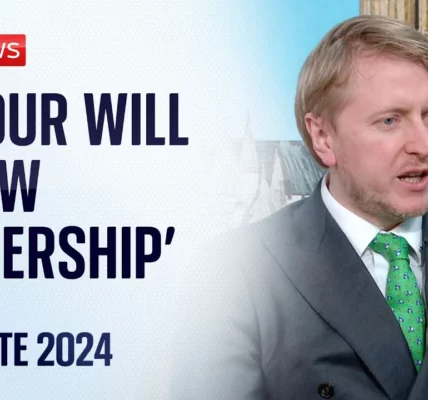Climate Change and Biodiversity: A Call to Action by David Lammy

This article delves into the critical issues surrounding climate change and biodiversity loss, highlighting key points from UK Foreign Secretary David Lammy’s address regarding the urgent need for global collaboration and effective action to combat these pressing challenges.
Introduction
Climate change poses one of the most significant threats to global stability, affecting not only the environment but also international relations and economic development. In his recent address, UK Foreign Secretary David Lammy emphasized the interconnectedness of climate issues and geopolitical stability. He underscored the necessity of a united global response to mitigate the effects of climate change, protect biodiversity, and ensure a sustainable future for all.
The Role of Coffee and Biodiversity
One of the most widely consumed beverages, coffee, plays a significant role in supporting biodiversity and local economies. Many consumers may not realize the environmental impact of coffee production. By supporting sustainable practices, coffee production can contribute to:
- Protecting forest ecosystems
- Increasing local biodiversity
- Supporting carbon sequestration
- Providing higher incomes for farmers
This model of sustainable agriculture is being replicated in various countries and for other crops, including rice, demonstrating a global shift toward eco-friendly farming techniques.
Global Seed Banks and Biodiversity Conservation
The Millennium Seed Bank in Sussex, UK, houses over two billion seeds, serving as a vital resource for restoration projects worldwide. These seeds represent a safety net against extinction and are crucial for:
- Restoring ecosystems
- Providing genetic diversity to crops
- Enhancing resilience to climate change, drought, pests, and diseases
Such initiatives highlight the importance of plants and their symbiotic relationships with fungi in maintaining critical ecosystem services, particularly in the context of carbon sequestration.
The Urgency of Global Action
With the current rates of biodiversity loss, the risks are profound. Sir David Attenborough’s poignant reminder that “what we do now will affect the next few thousand years” resonates with the urgent call for concerted global action. The intertwining crises of climate change and biodiversity loss demand immediate and effective responses.
Climate Change: A Geopolitical Challenge
During his address, Lammy articulated the need to view climate change through a geopolitical lens, asserting that:
- The climate crisis exacerbates existing global conflicts.
- It is a fundamental issue of security and stability.
- Addressing climate change can create economic opportunities.
Countries are already competing for critical resources affected by climate change, leading to potential conflicts, especially in vulnerable regions such as the Arctic and Amazon. Therefore, addressing climate change is not only an environmental imperative but also a geopolitical necessity.
Health Implications of Climate Change
The World Health Organization identifies climate change as the most significant threat to human health. The rapid spread of infectious diseases, as observed during the pandemic, highlights the interconnectedness of climate health and public health. As climate change intensifies, it will only increase the likelihood of health crises, making it imperative to address environmental issues to safeguard public health.
UK’s Commitment to Climate Action
Lammy’s address emphasized the UK’s commitment to re-establishing its leadership role in global climate action. Key initiatives include:
- Ending new oil and gas licensing
- Lifting the ban on onshore wind energy
- Increasing investment in renewable energy
- Promoting international collaboration for climate finance
The UK aims to build genuine partnerships with countries in the Global South, ensuring that climate action aligns with development goals and social justice.
Innovative Financing for Climate Action
To effectively tackle climate change, innovative financing models are essential. Lammy mentioned the need for:
- Increasing international climate finance for developing nations
- Creative solutions to unlock private sector investments
- Reforming international funding mechanisms to better serve the Global South
These steps are crucial for ensuring that vulnerable nations can adapt to climate changes while pursuing sustainable development.
Conclusion
David Lammy’s address serves as a clarion call for urgent action against climate change and biodiversity loss. The interconnectedness of these issues necessitates a comprehensive and collaborative approach. As global citizens, we must advocate for policies that promote sustainability, protect ecosystems, and ensure equitable development for all. Join us in supporting initiatives that foster a healthier planet and a more just society for future generations.
For further insights on sustainable practices and climate action, explore our related articles on climate change and biodiversity.
“`




